Key takeaways:
- Early dental care is crucial in reducing anxiety and establishing lifelong oral health habits in children.
- Involving kids in their dental routine, such as allowing them to choose toothbrushes and snacks, increases their enthusiasm for maintaining good dental hygiene.
- Turning brushing and flossing into fun activities, like challenges or songs, makes these essential tasks more enjoyable for children.
- Regular dental visits help prevent issues like cavities and misalignment, emphasizing the importance of routine check-ups for kids.
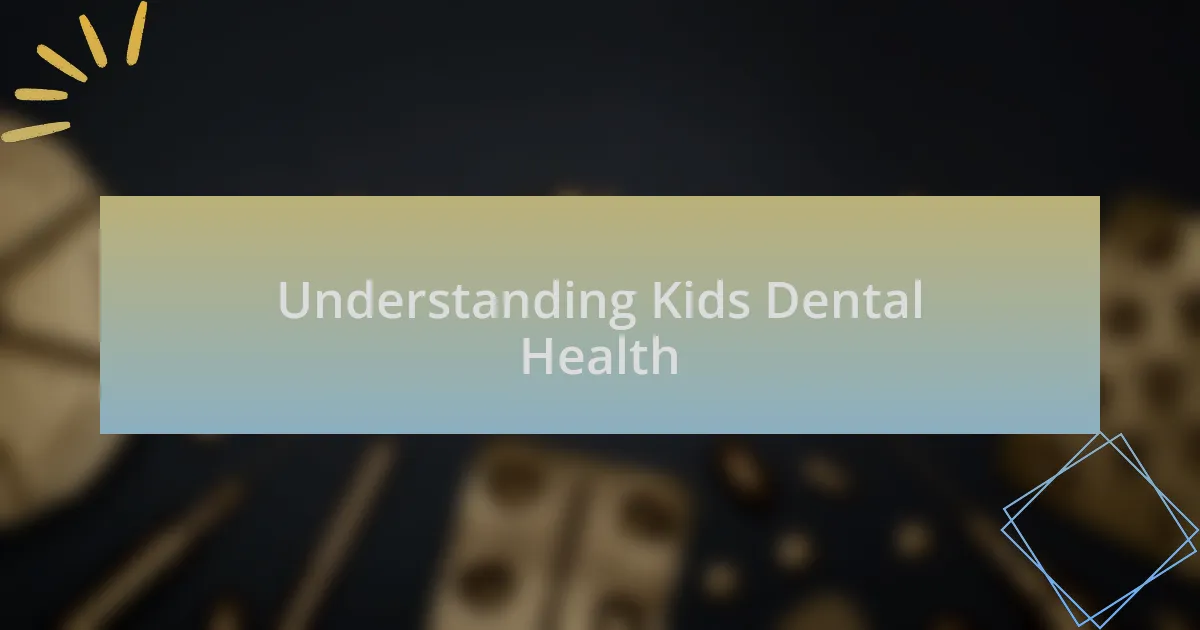
Understanding Kids Dental Health
Understanding kids’ dental health is essential for their overall well-being. I remember my child’s first visit to the dentist, and the anxiety that surrounded it. It’s completely normal for kids to feel nervous; after all, it’s a new experience for them. But teaching them that good dental health is a lifelong journey can ease those fears.
Cavities are one of the most common dental issues in children, often stemming from sugary snacks. I’ve found that when I involve my kids in choosing healthier options, like fresh fruit or crunchy vegetables, they feel more in control and excited about their choices. It’s fascinating to see how small adjustments in their diet can lead to significant improvements in their tooth health.
Additionally, establishing a brushing routine at an early age helps instill good habits. I recall setting an alarm for a fun tooth-brushing dance-off; turning this essential task into a joyful moment not only made my kids eager to brush, but it also reinforced the importance of maintaining their dental hygiene. How do you make teeth brushing fun for your kids? It’s the little victories in these routines that contribute to a lifetime of healthy smiles.

Importance of Early Dental Care
Early dental care lays the foundation for a lifetime of healthy smiles. I vividly recall my youngest’s first appointment; we practiced counting their teeth at home to turn it into a game. When I saw their excitement at sitting in the big dentist chair, I realized that creating positive experiences early on can significantly reduce anxiety about dental visits in the future.
Moreover, waiting too long to introduce dental care can lead to unnecessary issues. Once, my older child faced a small cavity because we overlooked a couple of check-ups. It was a wake-up call for our family. I started scheduling regular visits and making them part of our routine, emphasizing that those appointments are not just necessary, but an important form of self-care that everyone deserves.
Establishing an early appreciation for dental health can also influence kids’ attitudes as they grow. I’ve noticed my children show enthusiasm about oral hygiene when we turn it into a challenge—like who can brush the longest or best. How rewarding to see how these early lessons can shape an ongoing commitment to their own health!
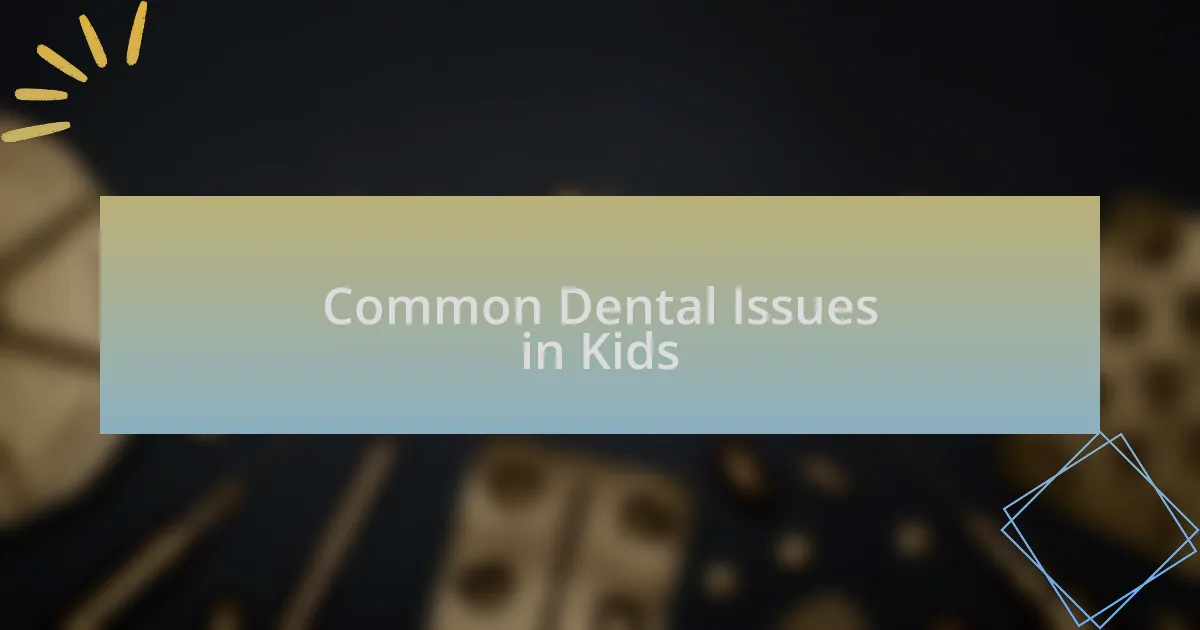
Common Dental Issues in Kids
One of the most common dental issues I see in kids is cavities. I remember when my daughter complained of a toothache; it turned out to be her first cavity. It was a tough moment for both of us, but it made me realize just how crucial it is to monitor their sugar intake and ensure they’re brushing properly. If sugar is a frequent visitor in their diets—like it was in ours—cavities can sneak in before you know it.
Another issue that often arises is misalignment or overcrowding of teeth. I’ll never forget the day my son smiled wide, revealing a mouth full of teeth fighting for space. It prompted us to seek orthodontic advice earlier than we anticipated. I learned that addressing misalignment early can save kids a lot of discomfort later on, not to mention the confidence boost they feel from a straight smile.
Lastly, gum disease can also affect kids, more than many parents realize. It shocked me when our dentist mentioned that even young ones could be at risk due to poor dental habits. The thought of my children experiencing gum issues was alarming, and it motivated me to reinforce the importance of not just brushing but also flossing daily. I often ask myself: How can we inspire our kids to take charge of their oral health? The answer lies in leading by example and remaining consistent with our routines.
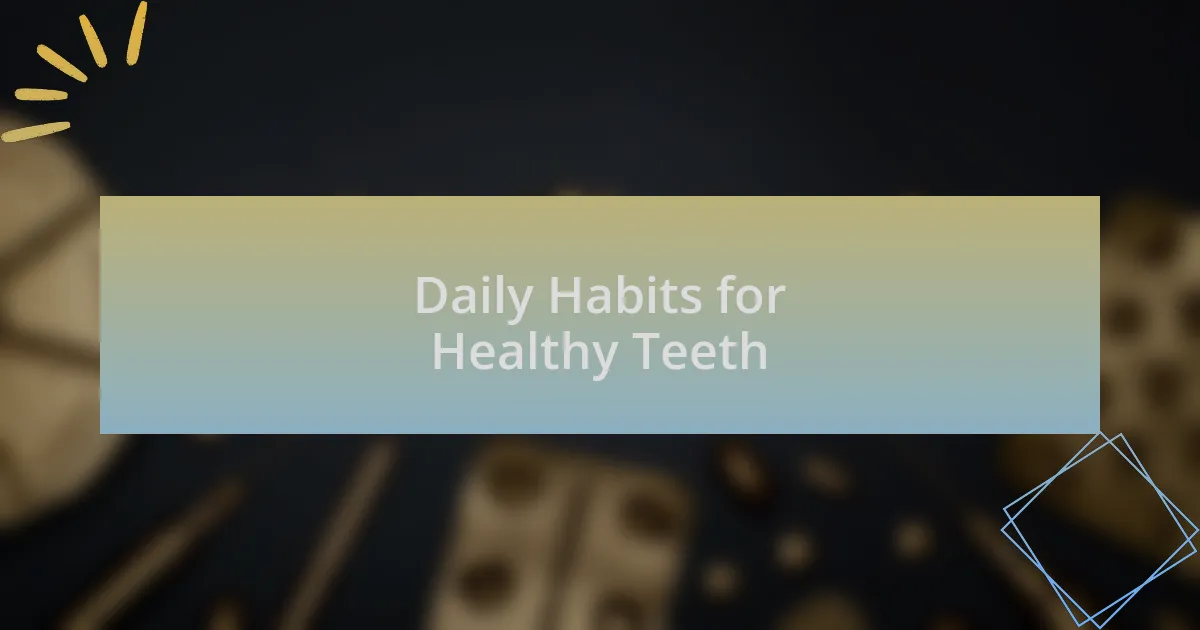
Daily Habits for Healthy Teeth
When it comes to daily dental habits for kids, establishing a consistent brushing routine is fundamental. I discovered that brushing twice a day—once in the morning and once before bedtime—really helps solidify this habit. I remember the initial struggle with my children, but turning it into a fun challenge, like a race against the clock, made a huge difference. Who wouldn’t want to become the family brushing champion?
In addition to brushing, I’ve learned that flossing is just as critical, even for little ones. I often tell my kids how flossing is like a secret agent for their teeth, sneaking in and cleaning those hard-to-reach areas. There was a moment when my youngest felt so proud after flossing without prompting; the pride in her eyes made me realize that creating a fun narrative around dental care can have lasting effects. How can we make these daily tasks exciting for them?
Lastly, I turn to dietary choices, which play a significant role in oral health. After limiting sugary snacks, I’ve seen a remarkable difference in my kids’ dental check-ups. The day I swapped out soda for water and fruit snacks for crunchy veggies—like carrots—was eye-opening! I was amazed by how enthusiastic they became about their new snack options. Encouraging healthy eating habits truly complements their dental hygiene routine, reinforcing the idea that healthy teeth and healthy food go hand in hand.
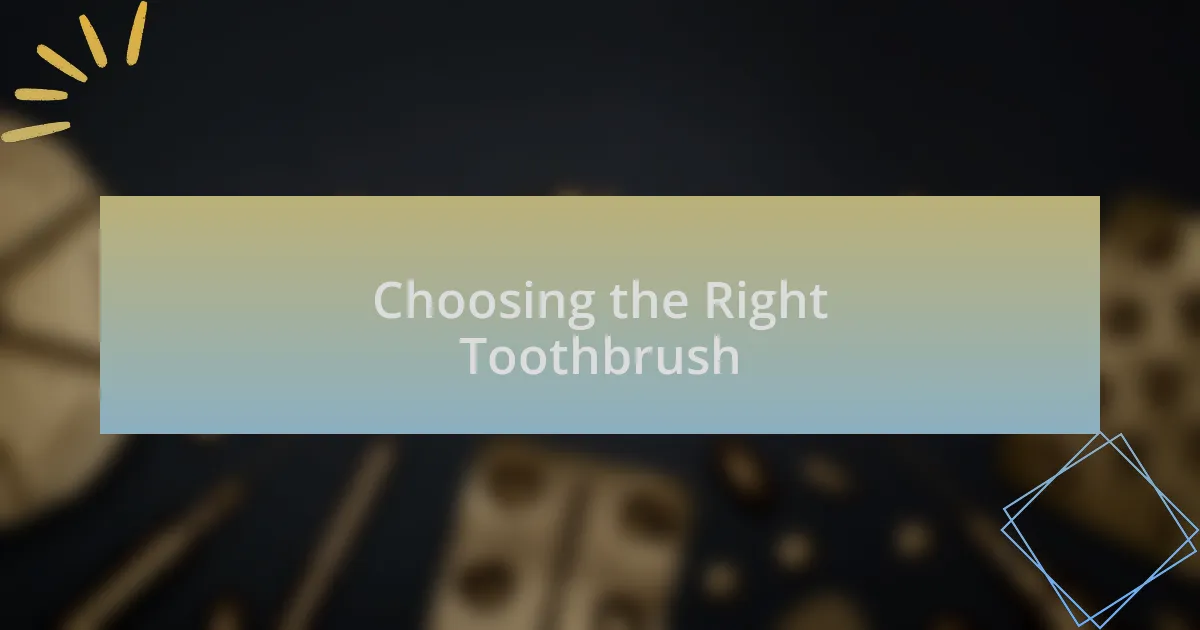
Choosing the Right Toothbrush
Choosing the right toothbrush for kids is essential in establishing a good dental routine. I always recommend a toothbrush with soft bristles, as they are gentle on little gums. I learned the hard way after witnessing my child wince from a firm-bristled brush, which made me realize that comfort is key to ensuring they enjoy brushing.
When selecting a toothbrush, the size and shape also matter significantly. I remember shopping with my daughter, and we stumbled upon a toothbrush designed for kids with cartoon characters on it. Her eyes lit up with excitement, and in that moment, I recognized how a fun design could motivate her to brush more eagerly. Do you think a child-friendly design could make a difference in their enthusiasm too?
Lastly, I’ve noticed that the right handle grips can make a world of difference. My son used to struggle with his grip on a standard toothbrush, which often led to sloppier brushing. When we switched to a toothbrush with a thicker handle specifically designed for kids, it was like night and day! It’s amazing how a small change in their tools can lead to big improvements in their dental habits.
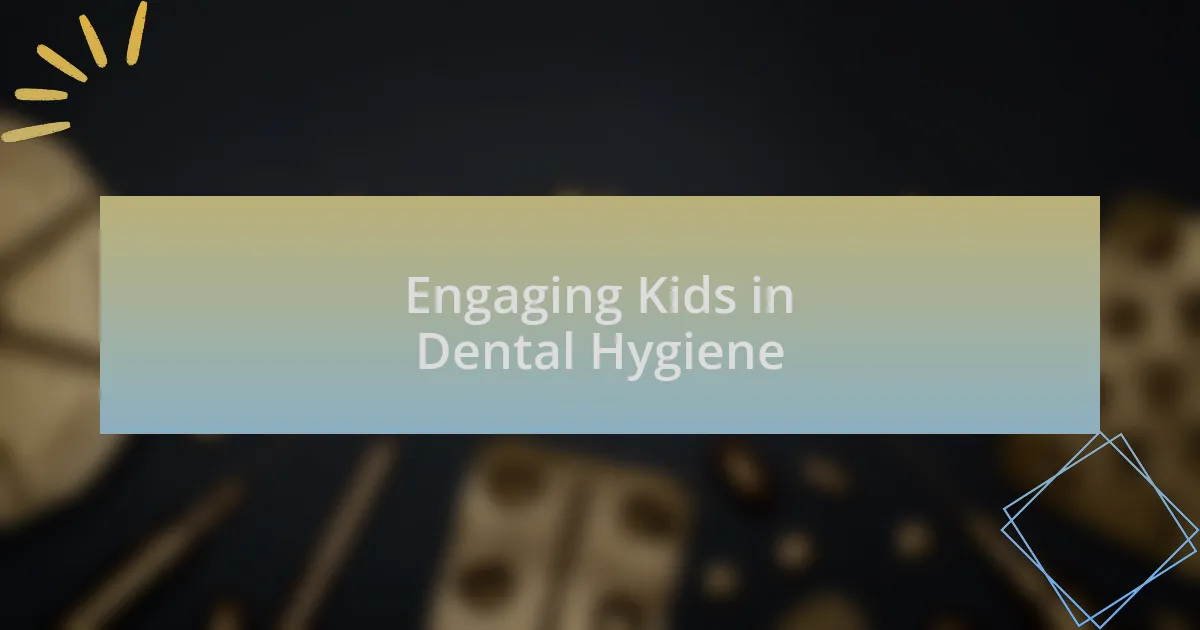
Engaging Kids in Dental Hygiene
Finding ways to make dental hygiene enjoyable for kids can be a game changer. I vividly remember when my daughter was younger, and I created a little brushing chart for her. Each time she brushed her teeth, she would get to place a sticker on it. Watching her beam with pride as she completed a week’s worth of brushing was incredibly rewarding. Have you ever seen how a simple reward can transform a task from a chore into a fun challenge?
Another strategy I’ve found effective is introducing fun dental hygiene songs. There was a period when my son got fixated on a catchy tune about brushing, and suddenly, our bathroom became a stage. We would sing and dance while we brushed, turning those few minutes into quality bonding time. Isn’t it fascinating how music can get kids more engaged in something they initially find tedious?
Moreover, involving kids in choosing their dental products can heighten their interest. I once took my children on a trip to the store for toothpaste, and the array of colorful options blew their minds. By letting them pick a flavor—bubblegum or strawberry, for example—they felt a sense of ownership over their dental routine. Could this simple act of choice lead to more consistent habits? I believe it absolutely does!